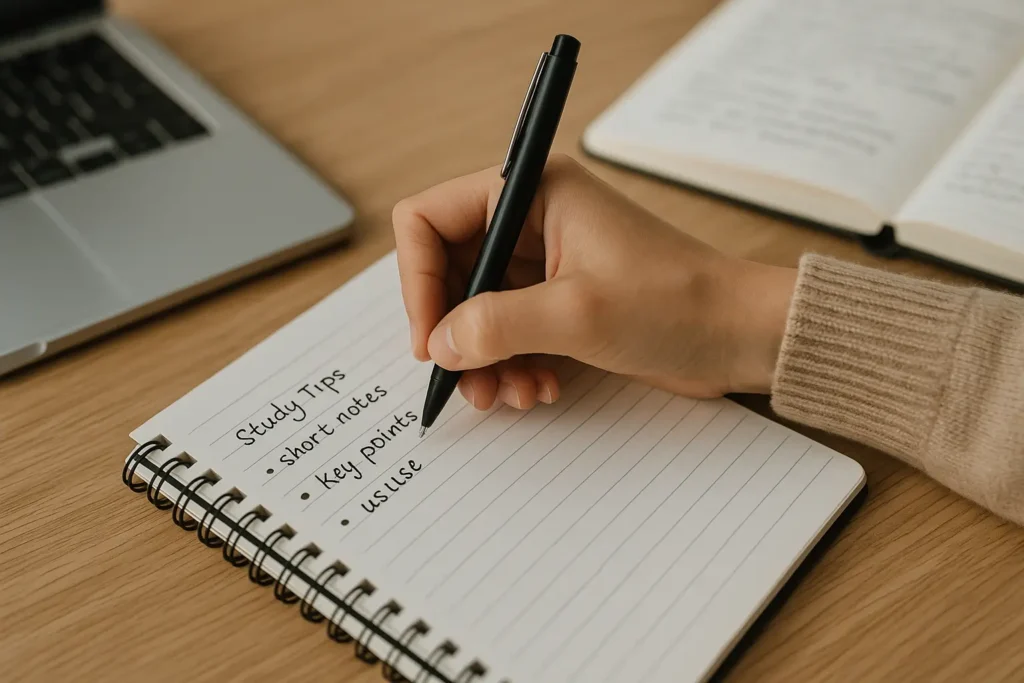
When preparing for public exams, many candidates struggle with how to study current affairs. News content is endless, constantly updating, and often full of irrelevant details. It’s easy to get lost in headlines, click on everything, or spend hours watching news programs — only to realize later that most of it won’t even show up in your test.
Yet, current affairs are a recurring topic in many exams, especially in areas like public administration, law, police careers, or diplomacy. These questions tend to focus on relevant, impactful, and contextual information, not day-to-day trivia. So how can you study it effectively, without wasting time or feeling overwhelmed?
In this article, we’ll show you practical and strategic ways to study current affairs — by focusing on what really matters, organizing your sources, and building a routine that fits into your study plan. No more endlessly scrolling through news websites or feeling anxious about “missing something.”
Understand What “Current Affairs” Really Means in Exams
Before you start reading the news every day, it’s important to understand what current affairs actually covers in public exams. It’s not about celebrity gossip or minor political drama. Exams tend to focus on high-impact national and international events, policy changes, environmental issues, public health updates, economic trends, and major legal developments.
Each exam has its own focus. For example, police exams might emphasize public safety and security events, while exams for administrative careers might cover economic policies, government programs, and institutional changes. Knowing the profile of your exam helps you filter the news and focus only on relevant topics.
You also don’t need to memorize every event in detail. What matters is to understand the context, the cause, and the consequences of major issues. This includes knowing dates, actors involved, and how the topic connects to broader social or political trends. In other words, quality of information beats quantity.
Choose One or Two Reliable Sources — and Stick to Them
One of the biggest mistakes candidates make is trying to follow too many news sources at once. They visit multiple websites, subscribe to different newsletters, and watch long news broadcasts daily. This creates anxiety, wastes time, and clutters your brain with excess information.
Instead, choose one or two trusted and curated sources that are focused on current affairs for exams. These could be weekly summaries, PDF bulletins, or YouTube channels created specifically for public exam students. The key is consistency — if you follow the same format and source regularly, your brain processes and retains the information more effectively.
Also, avoid using generalist news platforms unless you’re filtering by topic. Traditional media tends to present the news for the general public, not for candidates. That means lots of opinion, emotion, and details that won’t be tested. Save time by focusing only on structured, exam-oriented summaries.
Study in Weekly Blocks — Not Daily Marathons
Trying to study current affairs every single day is not only exhausting — it’s inefficient. The constant stream of information makes it difficult to retain anything. Instead, use a weekly system: pick one or two days per week to go through the most important events of the past 7 days.
This approach reduces mental overload and gives you time to process and connect the topics. Use highlighted summaries or dedicated current affairs PDFs, and go through them with focus. Aim to understand the main facts, dates, and background — not just memorize headlines.
Weekly study sessions also help with spaced repetition, which is essential for long-term memory. You can schedule light reviews every two or three weeks to revisit previous topics and reinforce your knowledge without constantly revisiting the same information.
Use Short Notes and Bullet Points for Better Retention

When studying current events, long paragraphs and detailed notes can work against you. News tends to be dynamic and factual, so it’s best to use bullet points, mind maps, or simple outlines to register the key information. This method is much faster and easier to review later.
Try to summarize each topic in three lines: What happened, when it happened, and why it matters. This forces you to extract the core information and discard what’s unnecessary. For example:
- Event: Brazil hosted the G20 Summit in 2024
- Date: November 2024
- Relevance: Focus on global economic recovery and sustainable development; major diplomatic presence
Keep your notes in one place — a digital notebook, app, or paper journal. The goal is to build your own personal database of relevant events, which you can review before your exam without needing to go back to the original sources.
Link Current Affairs to Other Subjects in Your Exam
One smart way to reinforce your understanding of current affairs is to connect them to other subjects. For example, if you’re studying public administration and a major reform law was passed recently, study it both as legislation and as current events. This double exposure deepens your comprehension.
You can also link news to subjects like constitutional law, ethics, economics, or even geography. When you understand how topics interact across disciplines, your answers in the exam become more complete, contextualized, and accurate — especially in essay questions or case-based problems.
This technique also helps you remember facts more easily. When you study a current event in isolation, it can feel abstract. But when it’s linked to something you’ve already studied in theory, it becomes anchored in your memory, and you’re more likely to recall it in the test.
Practice With Current Affairs Questions Regularly
Studying theory is important, but if you don’t practice with real questions, you won’t develop the exam mindset. That’s why you should regularly solve current affairs questions from previous exams, question banks, or weekly quizzes. They train your attention to detail and help you understand how the topics are tested.
Pay attention to how the questions are structured. Do they focus on dates, consequences, names, or policies? Are they multiple choice or essay-based? Understanding the question pattern helps you filter your study sessions and retain only what’s likely to be relevant.
Also, keep a small notebook or digital document with the questions you got wrong, and review them later. This creates a personalized error log that will guide your future reviews and help you avoid repeating the same mistakes.
Avoid Common Pitfalls That Waste Your Time
Many candidates fall into traps when trying to study current affairs. The first is believing that “the more I read, the better.” In reality, excess information without purpose leads to confusion. The second is jumping from one source to another without consistency. And the third is treating current affairs like a news binge instead of a study subject.
Avoid using social media or news apps as your main study method. The endless scrolling format makes it hard to focus, creates distractions, and mixes relevant and irrelevant content. Also, don’t fall into the trap of trying to memorize everything — remember, exams test relevance, not quantity.
Focus on strategy, structure, and repetition. The more you train your brain to filter and organize information, the less time you’ll waste and the more results you’ll get. You don’t need to be a news expert — you need to be an efficient and focused student.
Final Thoughts: Efficiency Beats Quantity
Studying current affairs doesn’t have to take hours of your day. In fact, the most successful candidates are those who study smartly, not endlessly. With the right sources, a weekly routine, and focused review techniques, you can turn this often-overwhelming subject into a manageable and even enjoyable part of your preparation.
Remember: quality matters more than volume. Your goal is not to know everything, but to know what matters most, and to be able to recall and apply it when needed. When you treat current affairs like any other subject — with structure, purpose, and review — your performance improves naturally.
So stop wasting time on random news, and start building a system that works for you. Current affairs can become a strong point in your preparation — as long as you study it with clarity, not chaos.